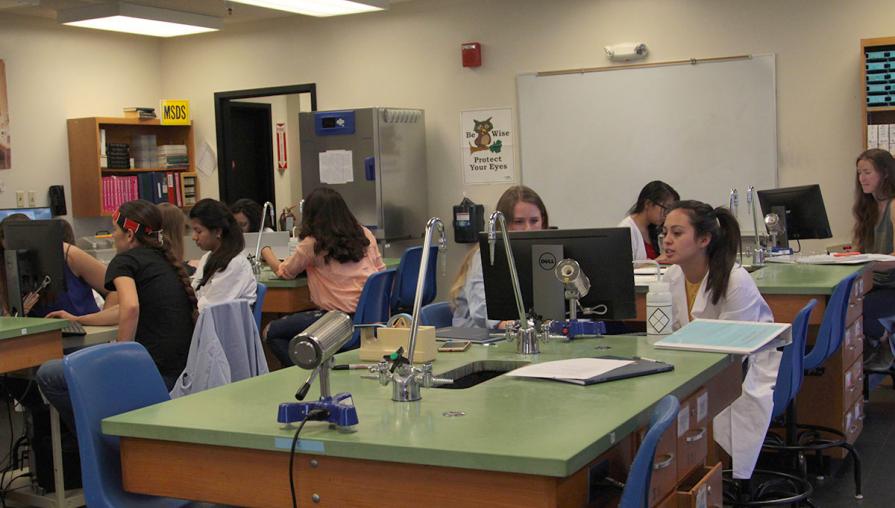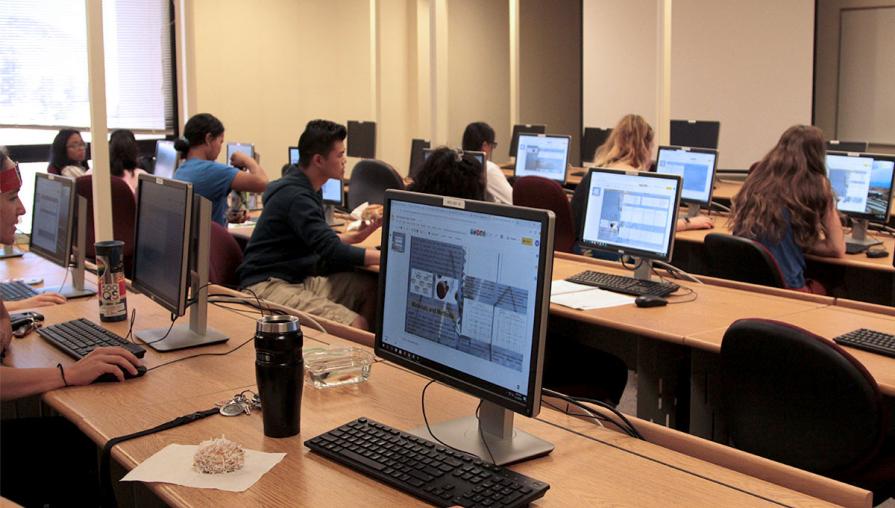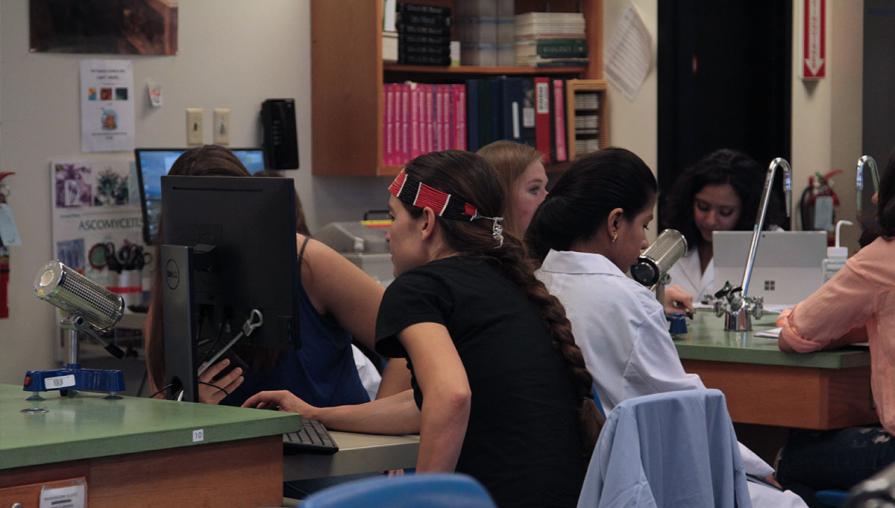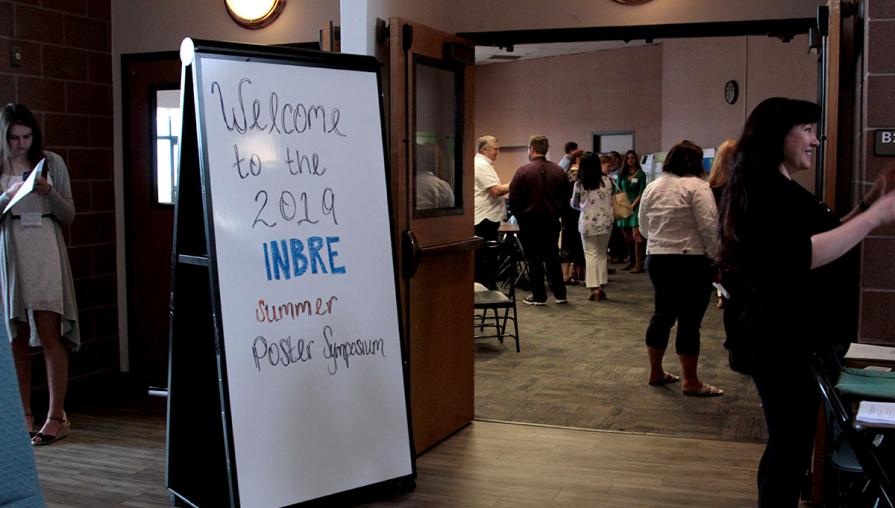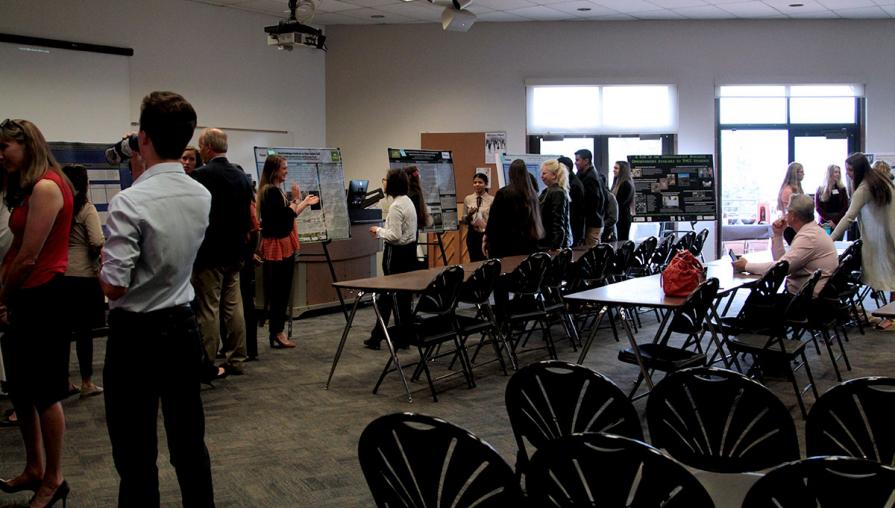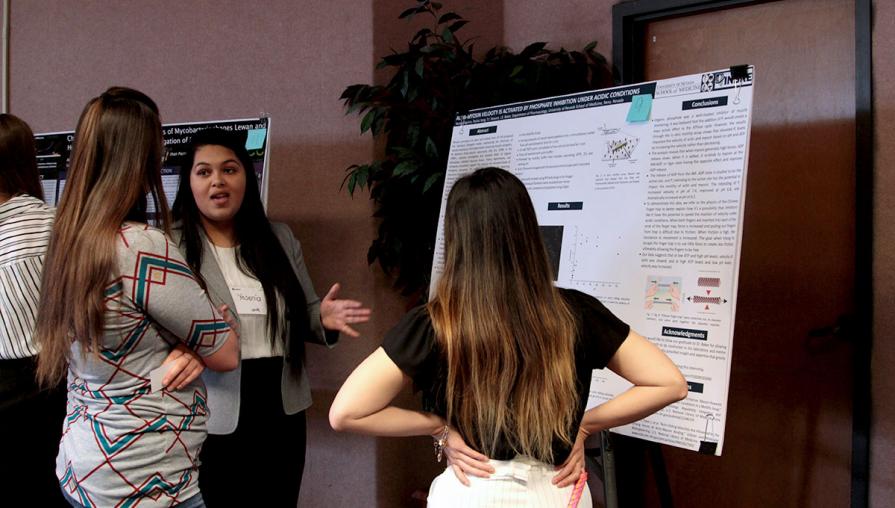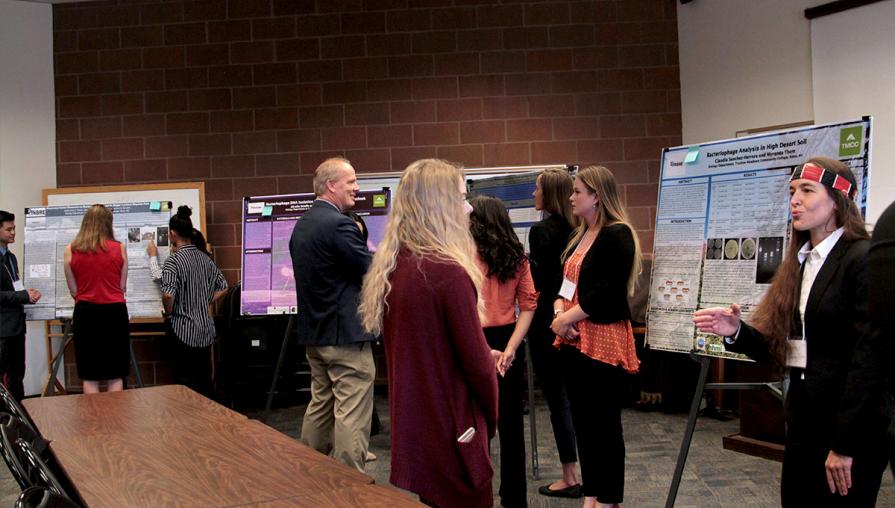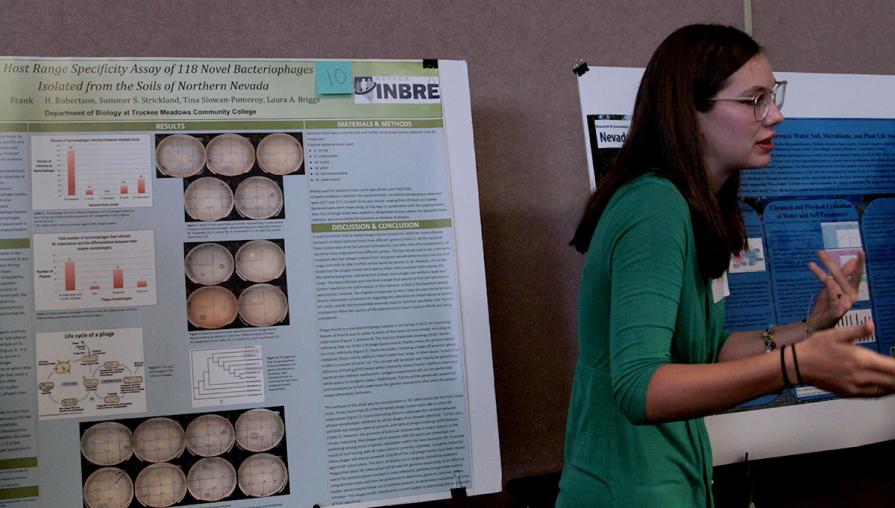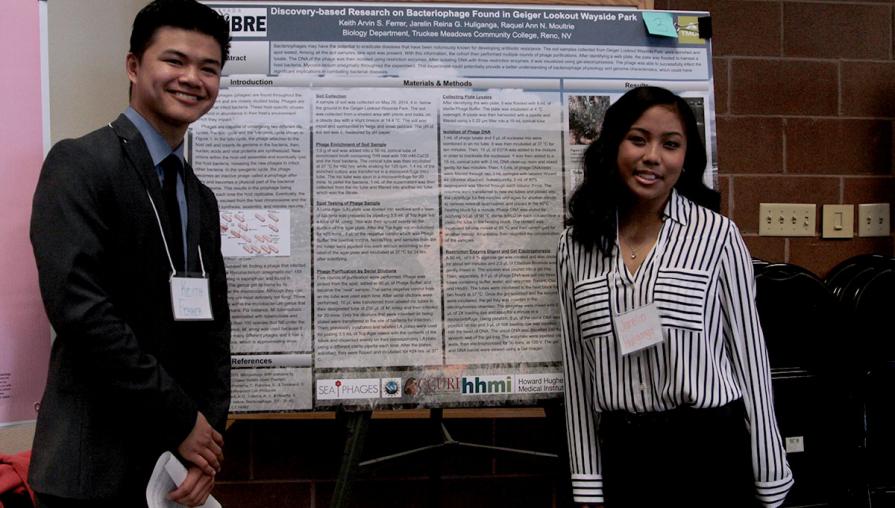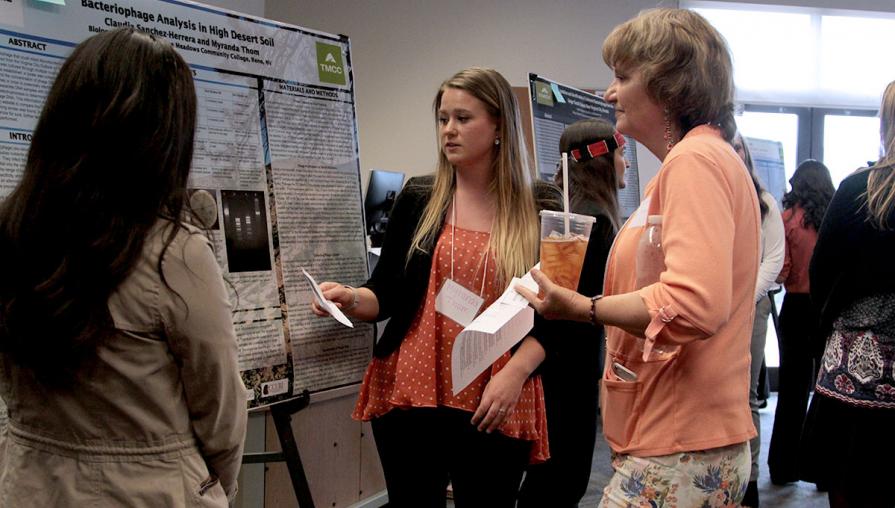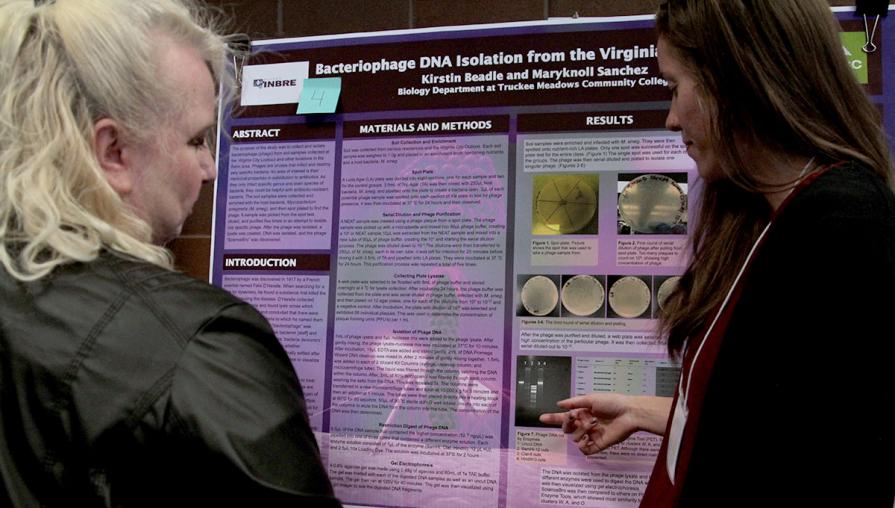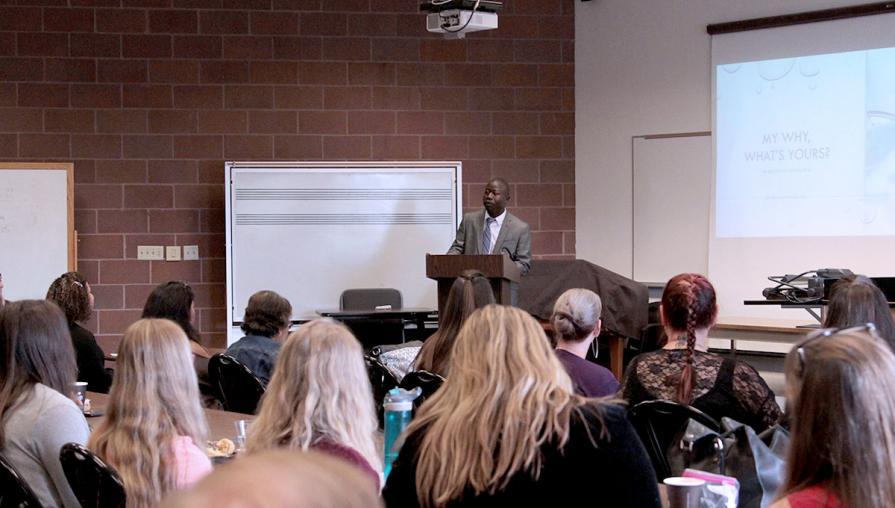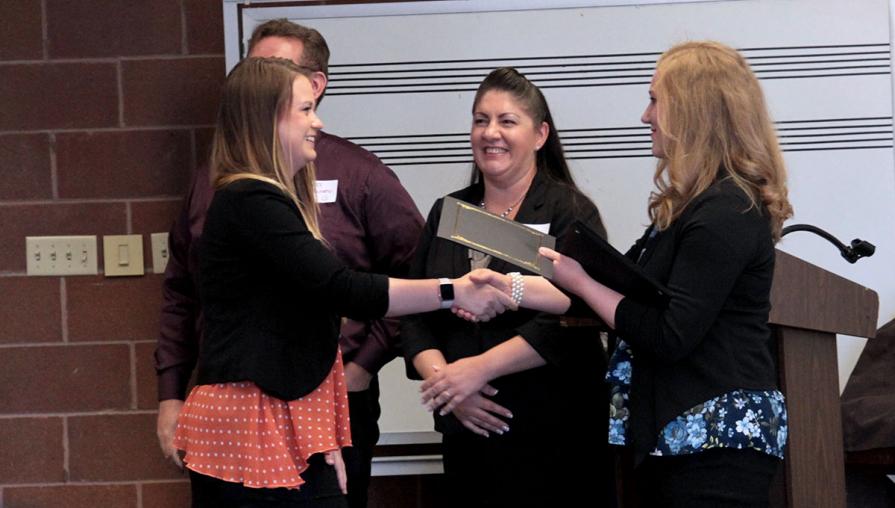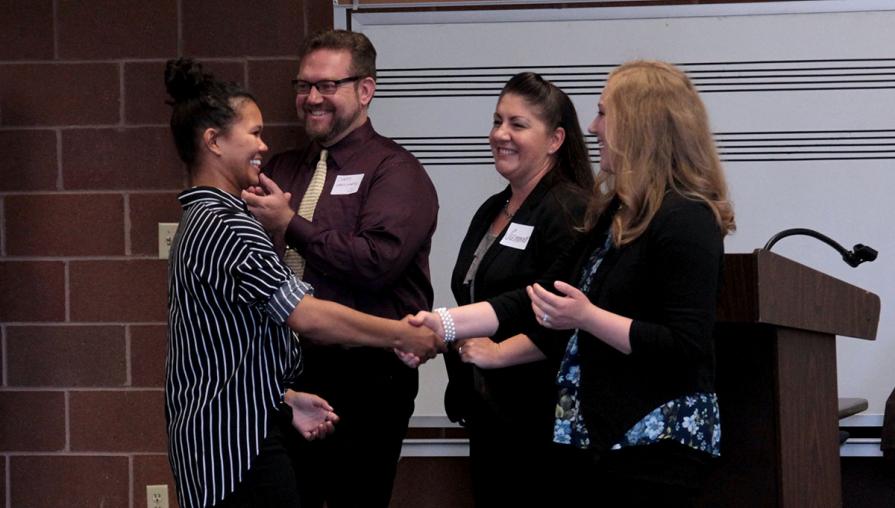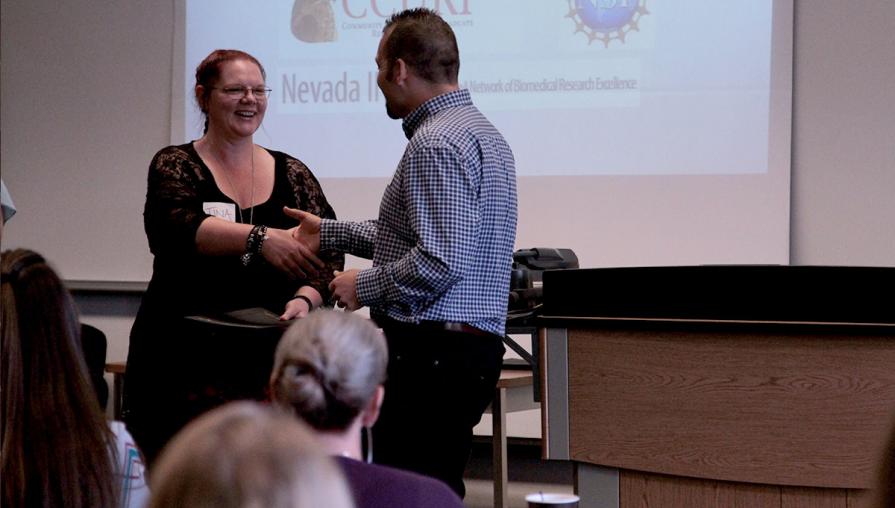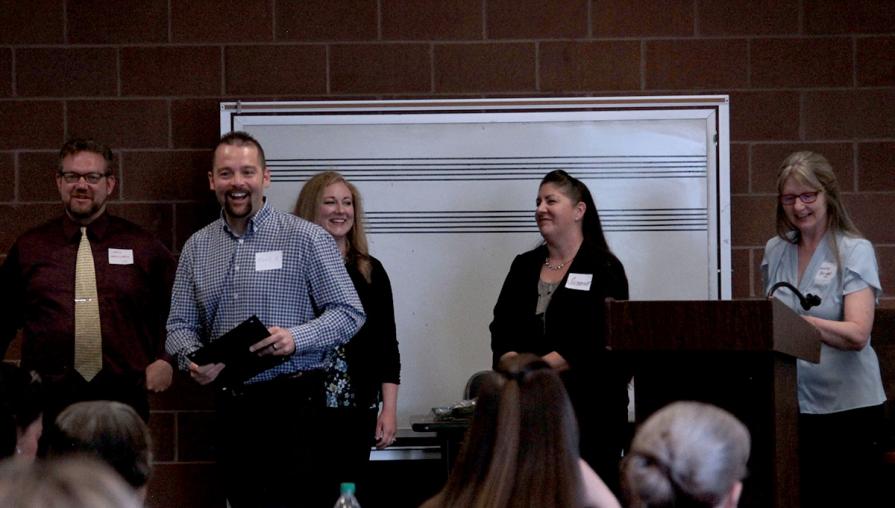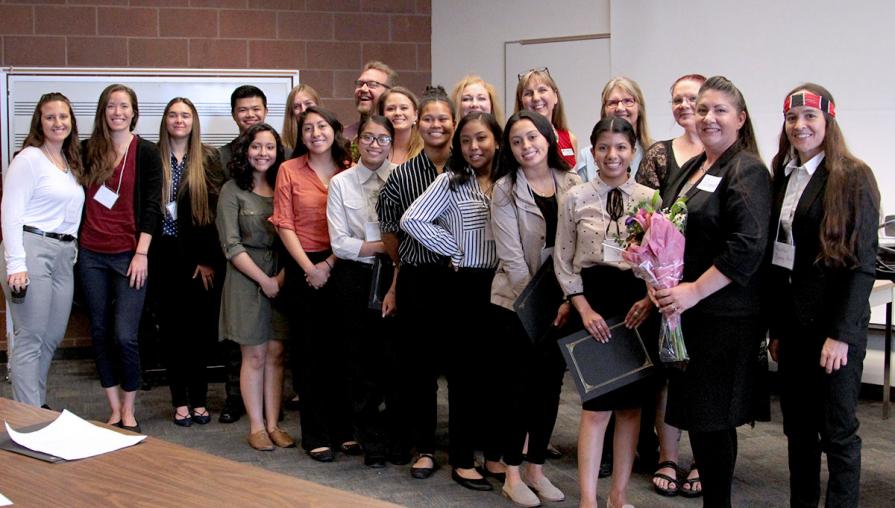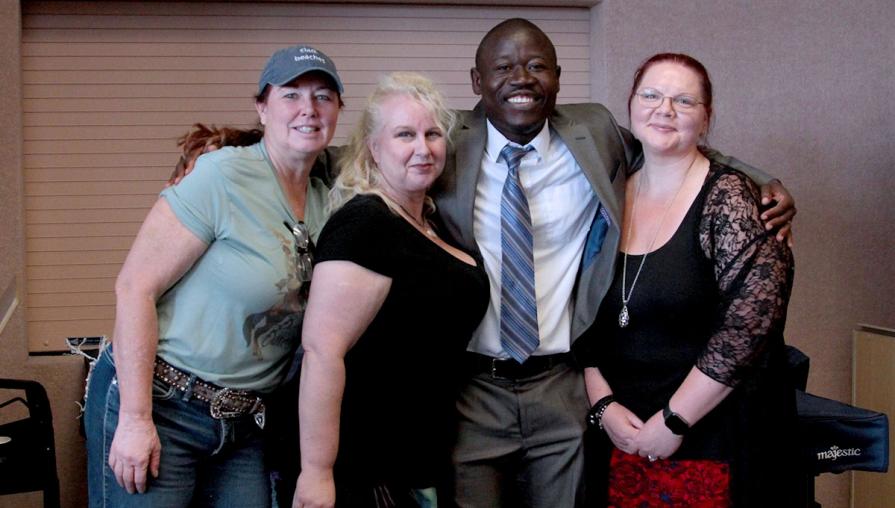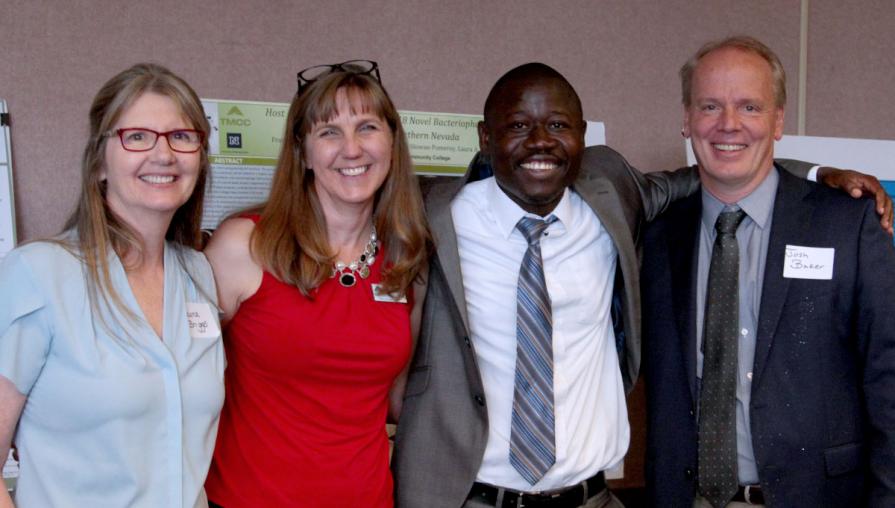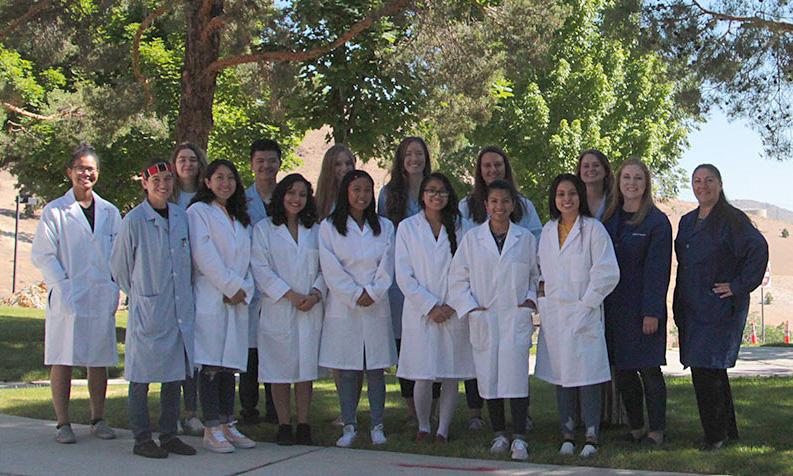
Heather Dorsey-Hirt is a second-year Nursing student who developed a love of science—of viruses and worms in particular—early in life, but whose academic and professional path wasn’t entirely clear until last year when an unexpected opportunity to conduct research as an undergraduate student opened several doors.
Last year, Dorsey-Hirt participated in the Summer BioResearch Program and presented her work at the Society for Advancement of Chicanos/Hispanics and Native Americans in Science (SACNAS) conferences (focused on undergraduate research) the following fall. That opportunity lead to an internship she will complete this Fall with the National Institute of Health (NIH) while she completes her Nursing degree at TMCC. “This school has given me quite a lot,” Dorsey-Hirt said. “I’m grateful—and this program is amazing.”
Dorsey-Hirt, who serves as a peer mentor to four of the fourteen students in the Summer BioResearch Program, says her goal this year is to help other students go to conferences like SACNAS. “It’s a way to jump-start your career in science,” she said. “It’s been a dream come true to wear a lab coat.” Although Dorsey-Hirt will continue her path in the Nursing field, she envisions herself going into nursing research, focused on clinical trials where (she hopes) viruses and parasites will frequent her work.
However, the hands-on experiences offered by the Summer BioResearch Program has been integral to her progress academically and professionally. The hands-on experience of collecting soil samples, extracting the DNA of bacteriophages and entering this data into a database “...cements the ideas for me. I have a much better grasp of the process. It’s super exciting.”
What is the Summer BioResearch Program?
Bringing research to TMCC’s biology classrooms has been sustained by grant dollars from Nevada INBRE, CCURI, Trout Unlimited Sagebrush Chapter, HHMI, SEA-PHAGES, and NV NASA Space Grant. Scientific research is quickly becoming a tradition at TMCC where, on the last Friday in June, a Research Symposium is held showcasing and celebrating the work of students who conducted the type of stem-to-stern research rarely seen in 100 and 200-level biology courses.
What began fifteen years ago as a final biology prep for students who had previously participated in the Summer Bridge program has since evolved into a five-week, five-days a week, four hours a day foray into what it means to conduct rigorous research on bacteriophage, a virus that can infect and kill bacteria.
Bacteriophages could be used as alternatives to traditional antibiotic treatments, and are used as such in Europe. Research, just like the work conducted by Summer BioResearch students, could lead to a useful treatment for antibiotic-resistant bacteria. This is about as real as it gets. “It’s not like normal Biology classes where everything is already done for us,” said student Raquel Moultrie, who just finished her first year at TMCC.
Moultrie is a first-generation college student whose passion for science has led her toward the goal of majoring in Biochemistry and Molecular Biology with the end goal of becoming a Small Animal Veterinary Surgeon.
The Summer BioResearch Program has enabled students like Moultrie to have a hands-on introduction to transforming the abstract and difficult scientific concepts into tangible practices. The fourteen students who participated in this five-week program began their projects by gathering soil samples near the lookout on Geiger Grade. They were accompanied by geology and botany instructors who gave students a holistic view of the ecology from which their samples came.
Then, students returned to the lab with their soil samples which they introduced bacterial hosts to “tease” bacteriophages out of the soil samples. From there, they conducted “wet lab” work (think: working in a traditional science lab, performing hands-on procedures), bioinformatics (research that is information-based, rather than experiential), which is then synthesized into a poster that is presented at the formal symposium on June 28. Their wet lab work was overseen by TMCC BioResearch Instructors Summer Strickland and Sydnee Franzwa, while the Bioinformatics portion of the program was overseen by INBRE Bioinformatics Outreach Coordinator Joey Wilcox.
For weeks 1-3, students isolate the bacteriophage DNA and then use then that DNA fingerprint to identify the type (bacteriophage cluster) of their sample. For weeks 4-5, students analyze their findings and synthesize information into scientific writing that, ultimately, is placed on a poster that they presented at the June 28 Symposium event.
Why Conduct Research?
George Mwinnyaa, TMCC Alumnus who is currently pursuing a Ph.D. at John Hopkins University, was the keynote speaker for the June 28 Symposium that celebrated the work of the BioResearch Program students, TMCC undergraduate students, as well as students from Western Nevada College and the University of Nevada, Reno who conducted undergraduate research.
“Why do you want to do research?” Mwinnyaa asked those in attendance. By sharing his experiences as a student, Mwinnyaa explored the various possibilities: research can help you become a more competitive applicant and/or it can improve your resume. But, he suggested, those reasons aren’t good enough—students need to connect your research to your passion. For Mwinnyaa, his passion for research is driven by his desire to find cures to diseases and conditions for those he cares about—including his family in Ghana. Keeping the practice of research infused with a personal passion is a way for students to persevere in what can be a difficult pursuit rife with challenges and unexpected outcomes.
“The only room in life that never fills up is the room for improvement,” he said, encouraging students to pursue their education—and research—by working hard toward goals that are deeply meaningful and personal.
Dr. Josh Baker, NV INBRE Director and TMCC Dean of Sciences Julie Ellsworth also delivered brief presentations, encouraging students to continue their research and to utilize the resources available at each institution as well as research opportunities through the INBRE program. Dr. Laura Briggs, Coordinator of the Summer BioResearch Program, acted as Master of Ceremonies.
Although every student received an award for participating in the five-week event, specific awards were granted to students who showed exemplary work in a specific domain.
- Best Lab Notebook (mentor): Myranda Thom
- Best Lab Notebook (student): Jarelin Huliganga
- Best Lab Notebook (honorable mention): Daisy Guzman Sotelo
- Master BLASTer Award: Myranda Thom
- BioInfo Mentor Award: Keith Ferrer
- Best Student Researcher: Raquel Moultrie
- Best Peer Mentor Award: Keith Ferrer
- Unofficial Bioinformatics Award: Raquel Moultrie
- Best Poster Award: Frank Robertson
Using Hard Work—and Gifts—to Inspire Others
Although the hours are long, students benefit from the BioResearch Program in ways they would not have expected. “I was scared of science when I first started,” said Keith Ferrer, who was awarded the BioInfoMentor Award as well as the Peer Mentor Award. After last year’s BioResearch Program, he enrolled in several science classes, including Biology 190 and Anatomy. Ferrer, a Nursing student, is hoping to mentor and encourage other BioResearch students to apply for the nursing program and to continue their work in both science and research.
For more information about the BioResearch Program, contact the Biology Department at 775-673-8251.







